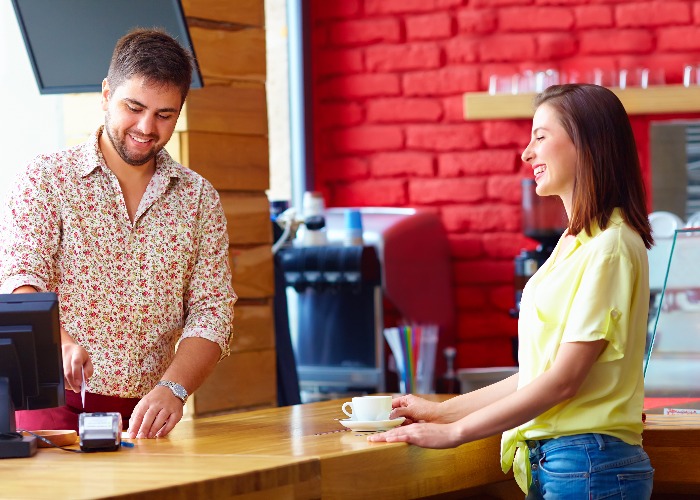Shopping safety: common mistakes we make while paying

It’s the time of year where money is flying out of your wallet as you prepare for Christmas, but are you making a mistake when you pay?
Whether you are doing your Christmas shopping or hitting the sales after the big day, make sure you don’t fall foul of these common mistakes at the till.
Handing over your contactless card
Contactless payments have made shopping even easier, but make sure you keep hold of your card.
You should never hand your card to anyone else to tap it on the reader as that leaves you open to skimming – where your details are copied so a criminal can use your card.
It also means the server has to present the reader to you, allowing you to check you’ve been billed correctly.
Read: Contactless card payment mistakes
Not counting your change
Make sure you count your change when it is handed to you at the till.
It can be a bit awkward, but if you don’t bother and only realise later on you’ve been short changed later it’s unlikely the shop will believe you and amend the mistake.

Shopping on unsecure websites
Before you pay for anything on a website make sure it is secure.
The site should have a padlock in the browser bar and the address should start with 'https://' - the s signifies that it is a secure website.
If you don’t check you could end up putting your card details into a website where hackers can intercept them.
Read: Online shopping: how to avoid fraud
Not getting extra consumer protection
If you are making a purchase worth more than £100 you should put it on a credit card so that you can benefit from extra consumer protection.
Under Section 75 of the Consumer Credit Act anything you buy worth between £100 and £30,000 is subject to additional protection.
This means your credit card provider is just as responsible for the goods or services you have purchased as the retailer.
In practice this means if something goes wrong you can claim your money back from your credit card provider if you can’t get it from the retailer.
Read: Claiming a refund via Section 75
Not protecting your PIN
We all tap our PIN into card readers regularly these days, but you need to be careful no-one else can see what numbers you are pressing.
Your credit or debit card has limited use to a criminal without your PIN so it is not uncommon for people to follow you waiting to copy your PIN before they steal or skim your card details.
Always cover your hand when you are putting your PIN into a card machine.
Stay safe online with these top loveMONEY tips:
Comments
Be the first to comment
Do you want to comment on this article? You need to be signed in for this feature